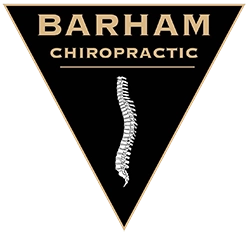The Neurological Link: How Chiropractic Care Enhances Brain Function and Nervous System Communication in Sacramento CA

It's an awesome day at Barham Chiropractic!
Welcome to our Sacramento CA Chiropractor office! We've been helping people feel better for over 30 years and today, we're excited to share some cool stuff with you.
In this article, we're going to talk about how going to the chiropractor can make your brain and your body's messaging system, called the nervous system, work better together. It's like a magic connection! We're going to take you on an exciting adventure to understand this.
So, stay with us for some neat tips and fun facts that can help you live a happy and healthy life.
The Role of Chiropractic Care, in Improving Neurological Function in Sacramento CA
If you want to learn more about how Chiropractic Care Helps the Brain, check out our blog on that here.
Chiropractic care can play a crucial role in improving neurological function by addressing issues in the spinal column and central nervous system. The brain and spinal cord are responsible for controlling all functions within the body, and any interference in this system can result in a range of symptoms.
Chiropractic neurology is a specialized field that focuses on the relationship between the nervous system and the spine. Chiropractors use a variety of techniques to manipulate the spine, alleviate subluxations, and improve overall nerve function. By correcting misalignments in the spine, chiropractors can help increase brain activity and promote proper communication within the central nervous system. This can result in improvements in motor function, sensory perception, and even cognitive function.
Regular chiropractic care can prevent future spinal issues from developing, reducing the risk of long-term neurological problems. Chiropractors can also provide guidance on exercises and lifestyle changes that can support neurological health. If you are experiencing symptoms such as headaches, dizziness, or tingling sensations, a chiropractor can help diagnose and treat the underlying issues to improve your neurological function. For more complex cases, a chiropractic neurologist may be necessary to provide specialized care.
Chiropractic Care for Specific - Neurological Conditions
Chiropractic care has been shown to be effective in managing certain neurological conditions, such as headaches, migraines, and vertigo. By realigning the spine and improving nerve function, chiropractors can alleviate pain and reduce symptoms associated with these conditions. However, it is important to seek a proper medical diagnosis before seeking chiropractic treatment.
Chiropractic care can be used as a complementary therapy for specific neurological conditions. Here are some examples:
- Headaches and Migraines: Chiropractic adjustments can help relieve tension and misalignments in the neck and spine, which can contribute to headaches and migraines.
- Multiple Sclerosis (MS): Spinal adjustments and other chiropractic techniques can relieve symptoms of MS, such as muscle spasms, stiffness, and pain.
- Parkinson's Disease: Chiropractic care can help improve mobility, balance, and coordination in patients with Parkinson's disease.
- Vertigo and Dizziness: Chiropractic adjustments can help relieve vertigo and dizziness caused by misalignments in the neck and spine.
- Thoracic Outlet Syndrome: Chiropractic adjustments and exercises can help relieve symptoms of thoracic outlet syndrome, such as numbness and tingling in the arms and hands.
- Sciatica: Chiropractic adjustments can help relieve pain and inflammation in the sciatic nerve, which runs from the lower back down to the legs.
Furthermore, research has shown that chiropractic treatment can be effective for a wide range of neurological conditions. For example, a study published in the Journal of Chiropractic Medicine demonstrated significant improvements in symptoms for a 15-year-old adolescent boy with migraine headaches and behavioral and learning difficulties. This study highlights the potential value of chiropractic care in addressing neurological conditions beyond musculoskeletal issues.
Chiropractic Care and Mind-Body Connection
Many people think of chiropractic care as a treatment for back pain or other physical ailments, but it can have a profound impact on overall health and wellness. This is because chiropractic care focuses on the relationship between the spine and nervous system, which is crucial for maintaining a healthy brain-body connection.
The brain is responsible for controlling all the functions of the body, from breathing and digestion to movement and coordination. It communicates with the rest of the body through the nervous system, which consists of the brain, spinal cord, and a network of nerves throughout the body. When the spine is misaligned, it can interfere with the normal functioning of the nervous system, leading to a variety of health problems.
Chiropractic care can also support the production of important substances in the body that are necessary for healthy brain function, such as neurotransmitters and hormones. These substances are involved in regulating mood, emotions, and cognitive abilities, and can have a significant impact on overall wellbeing.
In addition, chiropractic care can improve neurological connections throughout the body, which can enhance coordination, balance, and motor function. This can be particularly beneficial for athletes and people who engage in physical activity.
Neuroplasticity and Chiropractic Care
Neuroplasticity refers to the brain's ability to change and adapt to new situations, experiences, and learning. Chiropractic care can help improve neuroplasticity in several ways.
- Firstly, chiropractic adjustments can relieve stress and tension in the nervous system, allowing the brain to function optimally. This can improve the brain's ability to create new neural connections and pathways, facilitating neuroplasticity.
- Secondly, chiropractic care can help improve the quality of sleep, which is critical for brain function and neuroplasticity. Sleep deprivation can impair the brain's ability to create new neural connections, so getting enough quality sleep is essential for optimal neuroplasticity.
- Thirdly, chiropractic care can help improve overall health and well-being, which can positively impact neuroplasticity. When the body is healthy and functioning well, the brain can focus on creating new neural connections and pathways, promoting neuroplasticity.
In children, chiropractic care can be particularly beneficial for promoting neuroplasticity. As a child's brain is still developing, chiropractic adjustments can help ensure proper alignment and function of the spine and nervous system, allowing for optimal neuroplasticity.
How long does it take for Chiropractic Care to Enhance Brain Function and the Nervous System?
The timeline for chiropractic care to enhance brain function and the nervous system may vary from person to person. Some patients have reported improvement after just a few sessions, while others may take longer to see significant changes. It may also depend on the severity of the condition being treated, the patient's overall health, and their adherence to the treatment plan recommended by their chiropractor.
Ultimately, regular chiropractic care can help keep the nervous system functioning optimally, improving communication between the brain and other parts of the body, which can have a positive impact on overall health and well-being.
Thanks for stopping by!
Thank you for exploring the fascinating topic of how chiropractic care enhances brain function and nervous system communication. The neurological link between chiropractic care and overall well-being is a promising field of study.
If you or someone you know is interested in exploring the benefits of chiropractic care for neurological health, please don't hesitate to reach out to us during our office hours or by filling out the contact information on our New Patient Offer.
We would be honored to be a part of your journey towards better brain function and enhanced nervous system communication.
Let's embark on a path to optimize your neurological well-being together!
Reference
Clinically reviewed by Steven Barham, D.C.
- Updated on June 21, 2023
This site is for informational and educational purposes only. The information contained herein does not constitute the rendering of insurance advice, chiropractic healthcare advice, or the provision of treatment or treatment recommendations by our providers. Browsing this site does not establish a professional relationship with Barham Chiropractic or any member of the Barham Chiropractic staff.
If you have any concerns, questions, or comments about this article please reach out to our content moderation team at:
barhamcontent@gmail.com
You can also reach out to our Sacramento CA Chiropractor Office via phone call at (916) 542-6273 during office hours.
OFFICE HOURS
Monday
7:15am - 11:45am
2:00pm - 5:45pm
Tuesday
8:00am - 11:45am
Wednesday
7:15am - 11:45am
2:00pm - 5:45pm
Thursday
8:00am - 10:45am
Friday
7:15am - 11:45am
2:00pm - 5:45pm
Saturday & Sunday
Closed
Barham Chiropractic
3441 Arden Wy
Sacramento, CA 95825




